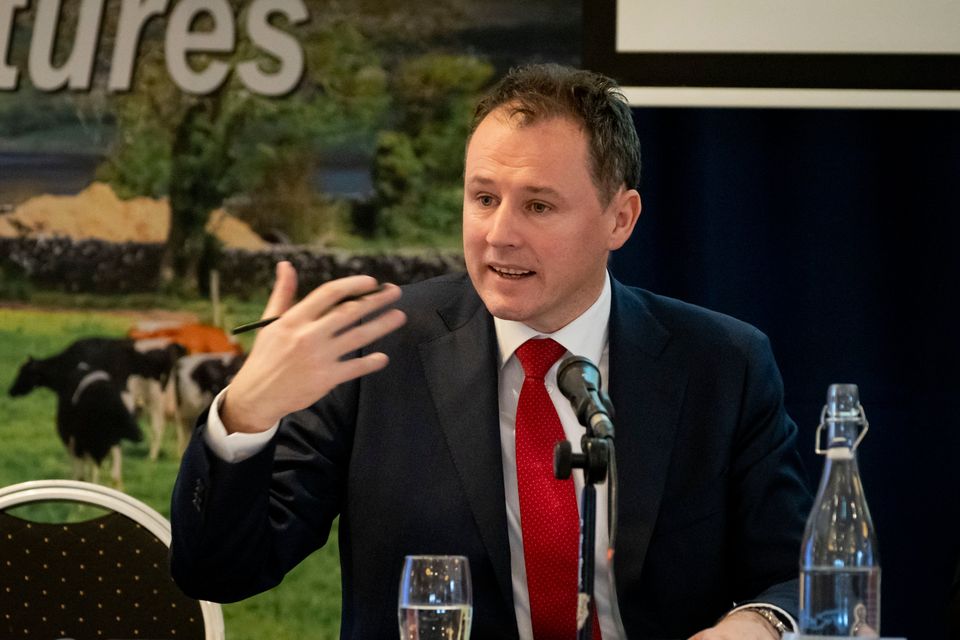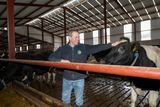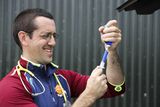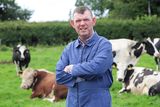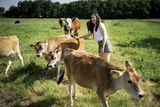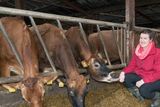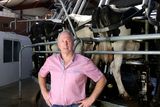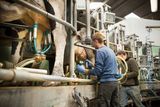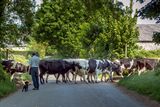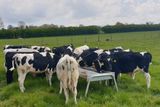Minister Charlie McConalogue ‘does not agree’ with An Taisce’s call to cut dairy herd
Minister Charlie McConalogue said our land has the capacity to utilise nutrients much more so than other countries. Photo: Don Moloney
Minister for Agriculture Charlie McConalogue has dismissed a warning from An Taisce that there will need to be a drastic cut to dairy cow numbers to meet water quality targets in more polluted river catchments.
Speaking to the Farming Independent, he said he “does not agree” with the NGO’s Head of Advocacy Dr Elaine McGoff, who called for the new measures in light of Teagasc’s own modelling.
“The bottom line is our lands and farming has the capacity to utilise nutrients much more so than other countries,” Minister McConalogue said.
“There’s a good reason for us to have the derogation, but of course it’s contingent on us having good water quality and seeking to improve water quality where there are challenges.
"We are taking many steps to do that. Farmers are doing great work and things have changed significantly, and there is a very rapid adoption as well and ongoing management and change at farm level to manage nutrients sensibly.”
He also pointed out there could be a delay in seeing improvements that farmers were making in certain catchments.
“There is no doubt that it’s challenging because there can be a time lag, but what we need to do is show them [European Commission] that we’re taking all the steps possible to take and that is showing progress.”
Asked if it was truly realistic to consider that Ireland could maintain a nitrates derogation of 220kg of organic nitrogen/ha, he insisted it was, but acknowledged that farmers had to manage nutrients in a way that “doesn’t lead to run-off”.
Read more
Speaking at a meeting of the Oireachtas Committee on Agriculture last week, Dr McGoff called for new measures at catchment scale based on the current pollution load.
“There will be some catchments where more drastic measures will be needed compared with others,” she said.
She added that the majority of existing measures in place will not be effective for adequately reducing nitrogen and will not reverse the water quality trends seen in the south and south east.
“Farmers, more than anyone, need honesty — it’s their livelihoods on the line… farmers should be told that from the outset, not sold false promises,” she said. “Ultimately, the water quality doesn’t lie and the European Commission have already indicated they will take little else into account.”
ICMSA President Denis Drennan said nitrates pollution of water must be tackled at a catchment and sub-catchment level, where no contributor gets a free pass.
An Taisce, he said, was pre-empting the results of a catchment-based approach.
“For example, 6pc of the land in the River Slaney catchment is dairying, so how can that be held responsible for the Slaney being in such a poor condition?
"Why are they not focusing on the other pressures in the catchment?
“We all have to put our shoulder to the wheel and we need to have a proper assessment of the catchment. Nobody can get a free pass.
"If dairying, tillage or municipal waste in a certain catchment is causing the problem, we need to look at that.”
